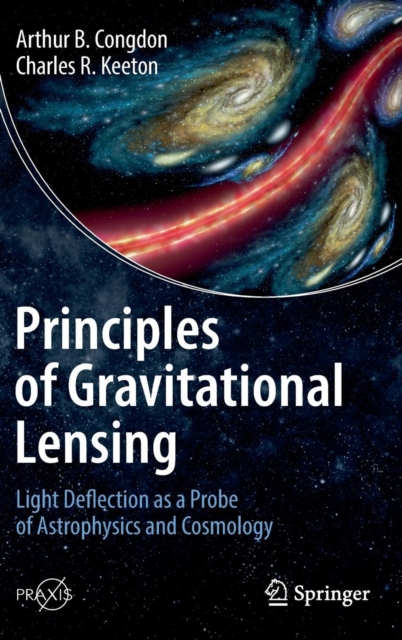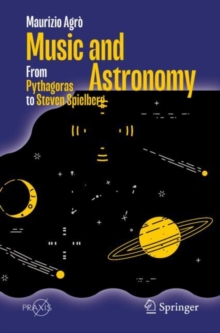
Principles of Gravitational Lensing : Light Deflection as a Probe of Astrophysics and Cosmology Hardback
by Arthur B. Congdon, Charles R. Keeton
Part of the Springer Praxis Books series
Hardback
Description
This textbook provides an introduction to gravitational lensing, which has become an invaluable tool in modern astrophysics, with applications that range from finding planets orbiting distant stars to understanding how dark matter and dark energy conspired to form the cosmic structures we see today.
Principles of Gravitational Lensing begins with Einstein’s prediction that gravity bends light, and shows how that fundamental idea has spawned a rich field of study over the past century. The gravitational deflection of light was first detected by Eddington during a solar eclipse in May 1919, launching Einstein and his theory of relativity into public view.
Yet the possibility of using the phenomenon to unlock mysteries of the Universe seemed remote, given the technology of the day.
Theoretical work was carried out sporadically over the next six decades, but only with the discovery of the system Q0957+561 in 1979 was gravitational lensing transformed from a curiosity ofgeneral relativity into a practical observational tool. This book describes how the three subfields known as strong lensing, weak lensing, and microlensing have grown independently but become increasingly intertwined.
Drawing on their research experience, Congdon and Keeton begin with the basic physics of light bending, then present the mathematical foundations of gravitational lensing, building up to current research topics in a clear and systematic way.
Relevant background material from physics and mathematics is included, making the book self-contained. The derivations and explanations are supplemented by exercises designed to help students master the theoretical concepts as well as the methods that drive current research.
An extensive bibliography guides those wishing to delve more deeply into particular areas of interest.
Principles of Gravitational Lensing is ideal for advanced students and seasoned researchers looking to penetrate this thriving subject and even contribute research of their own.
Information
-
Only a few left - usually despatched within 24 hours
- Format:Hardback
- Pages:287 pages, 34 Illustrations, color; 15 Illustrations, black and white; XIII, 287 p. 49 illus., 34 il
- Publisher:Springer Nature Switzerland AG
- Publication Date:12/12/2018
- Category:
- ISBN:9783030021214
£89.99
£78.99
Information
-
Only a few left - usually despatched within 24 hours
- Format:Hardback
- Pages:287 pages, 34 Illustrations, color; 15 Illustrations, black and white; XIII, 287 p. 49 illus., 34 il
- Publisher:Springer Nature Switzerland AG
- Publication Date:12/12/2018
- Category:
- ISBN:9783030021214










